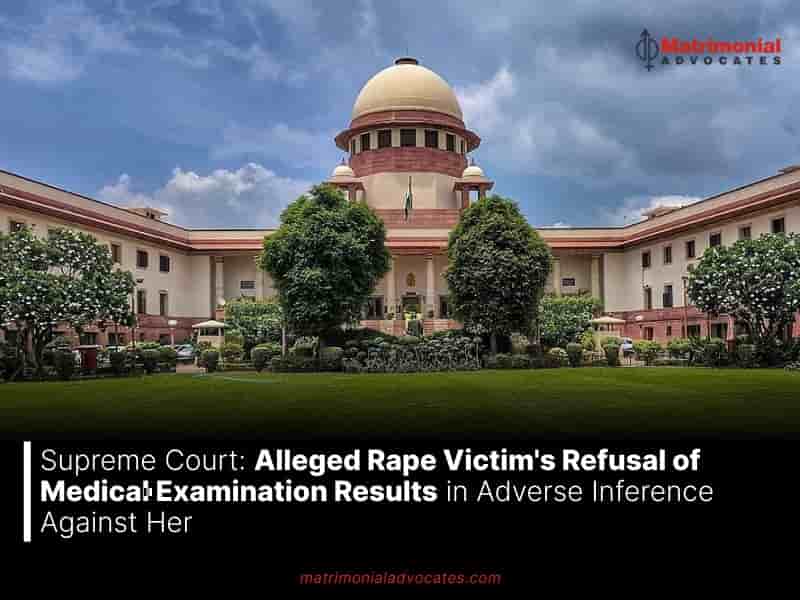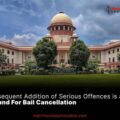
The criminal appeal before the Apex Court was directed against the impugned judgment of acquittal passed by the Himachal Pradesh High Court in an alleged case of rape.
The Supreme Court upheld the Himachal Pradesh High Court’s decision to acquit the accused in a rape case, emphasizing that an alleged rape victim’s refusal to undergo a medical examination may lead to adverse inferences against her.
The criminal appeal before the Apex Court contested the High Court’s verdict, which had granted the respondent’s appeal, resulting in his acquittal of charges under Sections 376 and 452 of the Indian Penal Code, 1860 (IPC).
The Division Bench comprising Justice Surya Kant and Justice Nongmeikapam Kotiswar Singh observed, “It is a well-settled proposition of law that non-allowance of medical examination by an alleged rapevictim raises negative inferences against them .We cannot ascribe any good reason to the complete lack of assistance that the complainants tendered to the authorities, apart from their contradictory stances before the Court.”
Factual Background
The incident dates back to 2007 when the prosecutrix (PW-10) filed an FIR through her father under Sections 452 and 376 of the IPC. As per the complaint, while her parents (PW-8 & PW-9) had gone to the hospital around noon to buy medicines, the respondent arrived at her house’s verandah and asked for a matchbox. Finding her alone, he allegedly grabbed her arm, took her inside a room, and forcibly engaged in sexual intercourse. Upon her parents’ return, she informed them about the incident, leading to the filing of the FIR.
The Trial Court convicted the respondent and sentenced him to 10 years of rigorous imprisonment. However, on appeal, the High Court overturned the conviction. Dissatisfied with this verdict, the appellant challenged it before the Supreme Court.
Reasoning
The Bench noted that the prosecutrix’s mother (PW-9) testified but did not support the prosecution’s case. She outright denied any incident similar to the one mentioned in the FIR, resulting in her being declared hostile, with no crucial information revealed during cross-examination. Likewise, the prosecutrix’s father (PW-8) provided evasive statements and failed to justify the delay in reporting the incident and lodging the FIR.
“While it is trite law that unexplained delay in lodging FIRs is commonly considered fatal to the prosecution’s case, we observe that in the instant case the delay was never even acknowledged – much less explained. Thus, it is our considered opinion that the necessary benefit of such an omission must accrue to the accused-respondent”, the Bench said.
After examining the case facts, the High Court noted that the prosecutrix and her parents failed to fully cooperate with the medical staff, which substantially weakened the credibility of their statements. The Bench also found no valid justification for their lack of assistance to the authorities.
As for the prosecutrix’s age, she had clearly admitted—and it was otherwise established—that she was 19 years old at the time of the alleged incident.
Addressing the jurisdictional constraints that typically limit interference in settled criminal appeals, particularly in cases where the High Court has acquitted the accused, the Bench stated: “It is equally well-established that save and except where this Court finds that the conclusion drawn by the High Court is based upon a complete misreading of the evidence on record, or where its conclusions are so perverse that the same cannot be sustained, then only might a judgment of acquittal warrant interference.”
The Bench observed that the High Court had thoroughly examined all the evidence and decisively concluded that the accused-respondent deserved the benefit of the doubt. As a result, the Bench dismissed the appeal.





